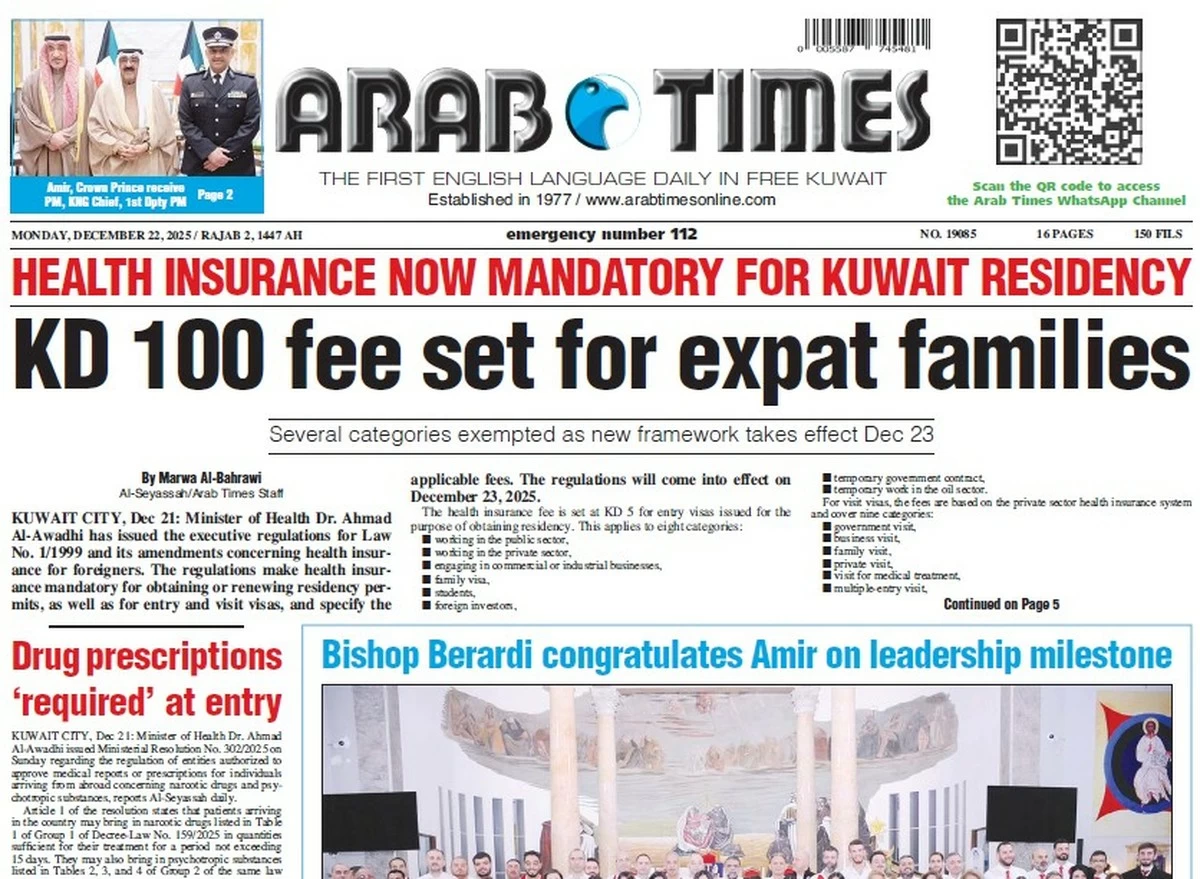06/02/2024
06/02/2024

THERE is a common expression - “Leave it to the experts” - which means assigning a task to someone who is qualified to perform it, or else “there will be trouble if the cobbler starts making pies.”
Recently, the editors-in-chief of local newspapers were in front of a man who fully understands what the country needs, and knows how decisions are formulated and how to remedy issues. He is also fully aware of the defects that have severely afflicted State institutions.
In the meeting between His Highness the Prime Minister Sheikh Dr. Mohammad Sabah Al-Salem and the editors-in-chief, the picture became clear to everyone that this government has come to work.
His Highness the Prime Minister is also fully aware of the importance of correcting the economic imbalance in order to push the country towards renaissance again.
It is true that remedying three decades of bad practices and deals between successive Cabinets and parliaments will not be a walk in the park. However, as long as there is will, finding a path towards rectification of issues becomes easy.
We all know that the ministerial position has not been stable for even a single day since 1992. We know how ministers have been dismissed just hours after their appointment, and how some made the ministry their personal institution and appointed their cronies in vital positions.
Some of them sought to systematically plunder, some others committed the greatest evil, which is mismanagement, and others resorted to make deals with the parliamentarians to take the cup of parliamentary accountability away from them.
Also, everyone knows that decisions were taken to close the country. Those who had experience and had built interests in Kuwait were deported overnight because they had reached 60 years of age. We also know how people were prevented from bringing their daughters to Kuwait on a visit unless they obtained a “not pregnant” certificate, a decision the likes of which have not been seen even in the banana republics.
His Highness the Prime Minister laid out the general lines of the state renaissance project before the editors-in-chief. This is with regard to the northern economic region, the objective of which is to protect the country’s national security by revitalizing it, and building and developing factories so that it becomes the nerve that connects us with neighboring countries.
One ruler
It also includes rendering it to be the key to land communication routes between Asia and Europe, starting with Mubarak Port, which must be reactivated. The planned routes must be completed, and sovereign funds must be invested at home instead of being exposed to the fluctuations of global financial markets.
There is no doubt that the expulsion of investments from Kuwait made it seem like an island isolated from the world, while other neighboring countries opened up to the world and worked to establish private universities, as in the Emirates, which today has about 60 private universities and colleges. As for Qatar, there are 30 private universities. On the other hand, in Kuwait, the university city in Shadadiya has been suffering from obstruction since its approval in 1986. To this day, that project has not been completed.
Also, our health sector suffers from mismanagement and lack of professionalism. A total of 112 private hospitals and 53 government hospitals have been built in the Emirates alone. All of this has helped develop its local economy, because it has become a treatment and educational hub for thousands of patients and students coming from abroad.
Kuwait could have benefited from all of this if there had been an understanding behind the meaning of opening the country based on well-thought-out plans, instead of being controlled by the mentality of “the foreigner who is coming to eat our wealth”, as some shortsighted people imagine to this day.
They are the ones who advocate the culture of others, to the extent of reviving tribalism and sectarianism among the members of society, while forgetting that a person’s true dignity is his experience and his understanding of how to serve his country.
All these important issues were presented by His Highness the Prime Minister, with whom the editors-in-chief, during the meeting with him, felt he had a great deal of understanding of what the country requires. He made them feel completely comfortable with the path that the government embarked on to work.
There is no doubt that His Highness the Prime Minister has all the tools to work towards achieving the government’s program. He also has great public support, and the confidence of the political leadership.
This is proof that Kuwait is governed by one ruler, and not 51 MPs, as was the case in recent years. Therefore, after this meeting, we believe that the affairs of the country have been handed over to the expert.
By Ahmed Al-Jarallah
Editor-in-Chief, the Arab Times


